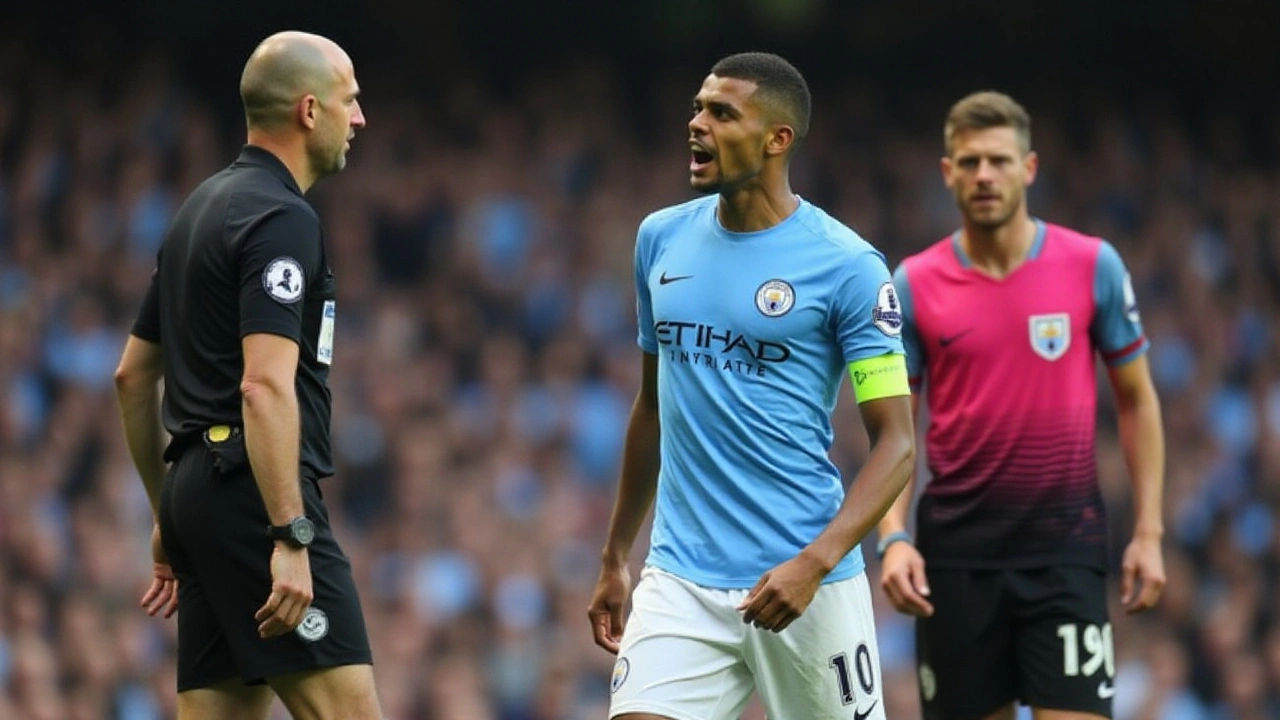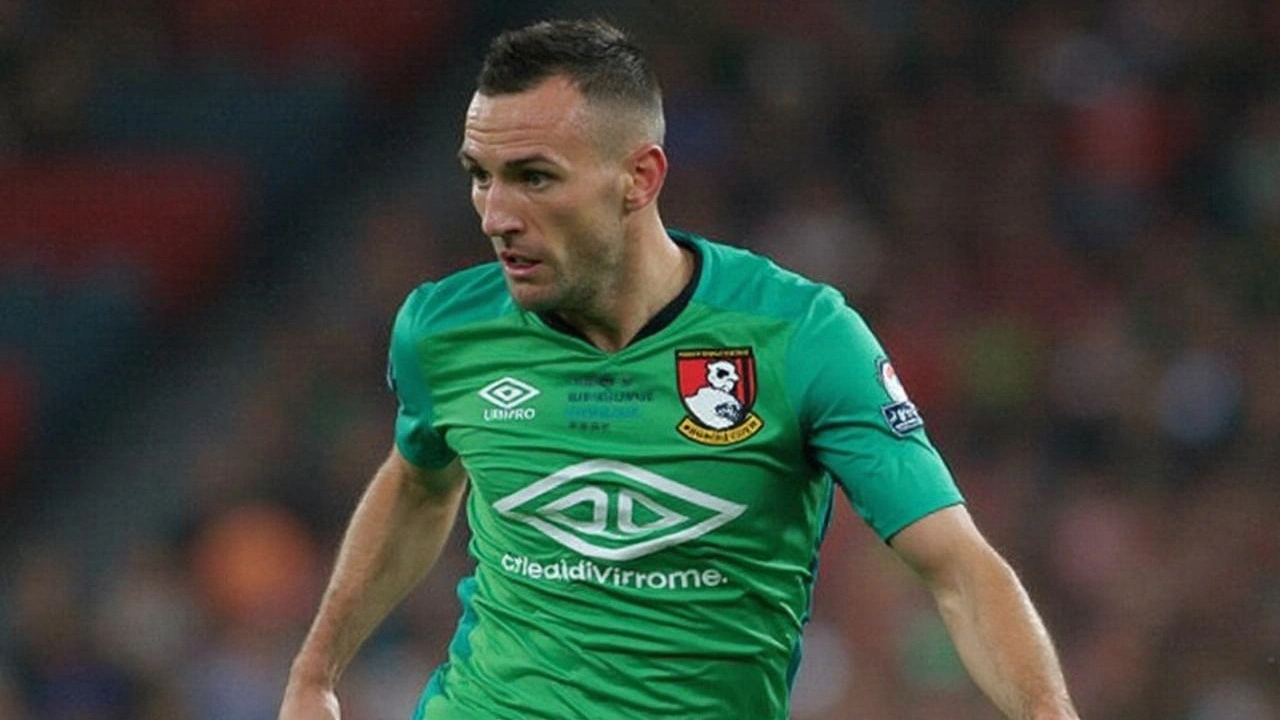Kyle Walker Expresses Frustration Over Referee Michael Oliver's Timing During Arsenal's Equaliser
In a gripping match between Manchester City and Arsenal, a crucial moment overshadowed the game, drawing the ire of Manchester City and England right-back Kyle Walker. During a pivotal instant in the match, Walker was called aside for a brief chat by referee Michael Oliver. This timing couldn't have been worse for Walker, as it distracted him from the action just as Arsenal was preparing a quick free-kick. The result? An equalising goal for Arsenal that has since stirred a heated debate.
According to Kyle Walker, the interruption by Oliver was not merely an annoyance but a decisive moment that altered the flow of the game. Walker was forced to engage with the referee, and this brief moment left him out of position, unable to react in time to thwart Arsenal's attack. The free-kick was taken swiftly, and Walker was caught off guard, unable to defend as effectively as he would have liked.
Timing and Decision-Making Under Scrutiny
Walker’s grievances focus primarily on the timing of Oliver’s call. Football matches are often a game of milliseconds; every moment counts potentially making or breaking a game. When Oliver signaled for Walker’s attention, it disrupted his concentration and position. As Walker attempted to comply with Oliver's request, Arsenal took advantage of the situation, executing a quick free-kick that led to their equalising goal. Walker believes that if he had not been drawn into the brief conversation, he would have been fully prepared and able to defend against Arsenal’s play.
Such incidents are not uncommon in football, but they certainly highlight the critical role referees play in match dynamics. The referee's job is demanding, requiring them to make split-second decisions that can have profound impacts on the game. However, players like Walker depend on a respectful and timely interaction, where game interruptions should be minimized, particularly during critical phases of play.
The Intricate Balance Between Refereeing and Game Performance
This episode brings to light the intricate balance referees must maintain between ensuring a fair game and not disrupting players' engagement with the game. Referees like Michael Oliver are tasked with enforcing rules, maintaining order, and ensuring players' conduct aligns with the spirit of the game. However, incidents such as this indicate how delicate this balance can be and the potential for unintended consequences.
Walker's criticism underscores a broader issue within professional football, where players and referees must navigate situational awareness dynamically. Communication on the pitch is essential, not just between teammates but also between players and officials. Nonetheless, the timing of such interactions is critical. Walker’s frustration is not just with the distraction but with the missed opportunity to defend effectively for his team.
Reaction from Fans and Pundits
The incident has not gone unnoticed by fans and football pundits. Social media platforms buzzed with discussions about whether Oliver’s timing was appropriate or if it exemplified a need for more strategic refereeing in high-stakes matches. Some fans sympathized with Walker, agreeing that the referee's interruption was ill-timed and detrimental to Manchester City's defensive setup. Others, however, argued that football is an unpredictable sport, and such moments are part of the game’s inherent excitement.
Football analysts have weighed in, dissecting the sequence of events leading up to Arsenal's goal. Discussions have centered around how referees can make their calls more seamlessly, perhaps even considering new protocols that allow for less intrusive interactions during intense phases of play. Suggestions include non-verbal cues or brief pauses in play where necessary, offering a fair balance between rule enforcement and alert player engagement.
Kyle Walker's Continuing Influence
Despite the frustration with this particular incident, Kyle Walker remains a pivotal figure in Manchester City's lineup. Known for his speed, tactical awareness, and solid defensive skills, Walker's reactions and insights are influential within the team. His frustration towards the referee’s decision underscores his dedication to his role and his acute awareness of how seemingly minor interruptions can significantly impact game outcomes.
By voicing his dissatisfaction, Walker sheds light on the importance of harmonious interaction between players and referees. His experience serves as a learning moment not just for officials like Oliver but for the broader football community. It exemplifies the importance of every player's concentration and positioning, while highlighting the critical nature of judgment calls made by referees throughout a match.
Seeking Solutions and Moving Forward
For the future, it may be beneficial for football governing bodies to revisit guidelines on player-referee interactions during intense match moments. Enhanced training programs for referees could include strategies for minimal disruption and more intuitive communication methods. Referees being keenly aware of when to make calls and how to do so without halting game momentum might contribute to smoother playing conditions and fewer frustrations on the pitch.
Ultimately, while the incident between Kyle Walker and Michael Oliver during the Arsenal equaliser has sparked debate, it also paves the way for discussions on improving the synergy between players and referees. As football continues to evolve, so too must the understanding and protocols governing one of its key components — the referee-player interaction. For fans, players, and officials alike, this incident is a reminder of the ever-present balance required to keep the beautiful game fair, flowing, and full of passion.

